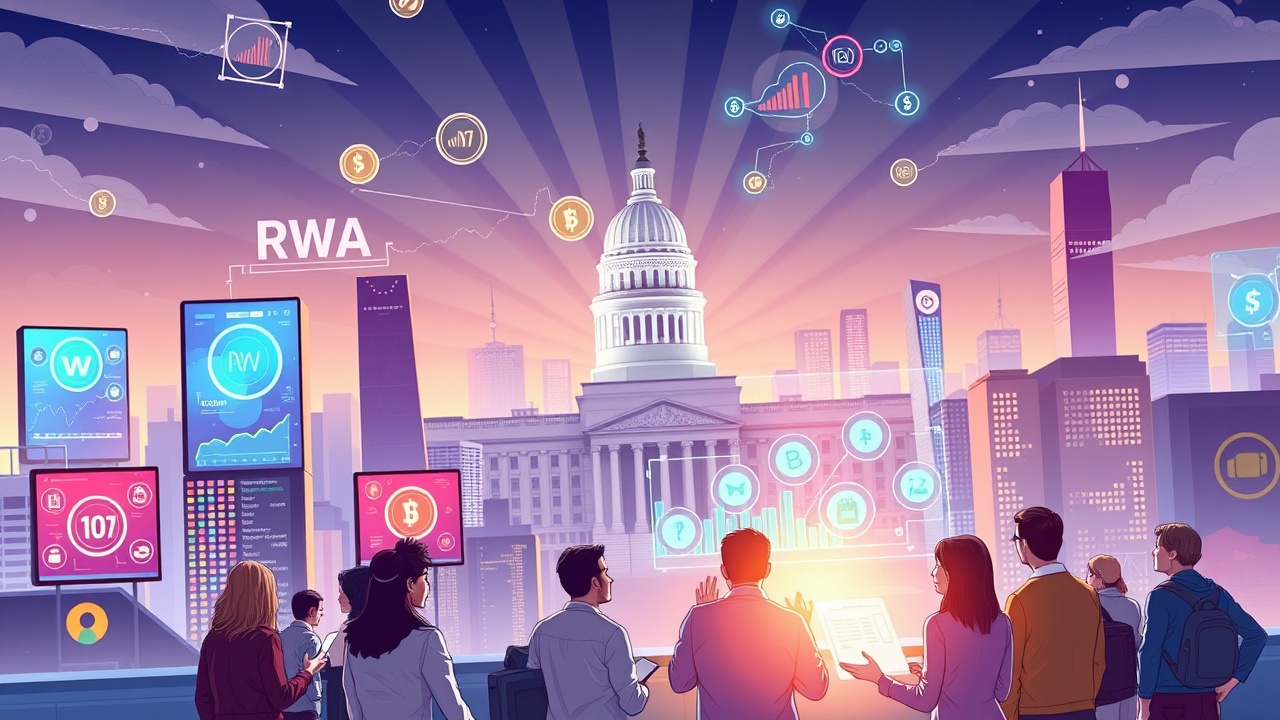Tokenization of Real-World Assets
Tokenization of real-world assets (RWAs) is gaining traction as a groundbreaking advancement in the financial sector. With the recent enactment of supportive legislation like the US GENIUS Act, the industry is set for significant expansion, as highlighted by Solomon Tesfaye, the newly appointed Chief Business Officer of Aptos Labs. In an interview with Cointelegraph, he expressed optimism about the bill’s potential to encourage institutional interest in the cryptocurrency market, noting that it represents a substantial commitment by Congress toward fostering responsible blockchain development.
GENIUS Act and Its Implications
The GENIUS Act, which was recently passed by the US House of Representatives alongside two other cryptocurrency-related initiatives during the Republicans’ dedicated “crypto week,” aims to establish a regulatory framework for the burgeoning $260 billion stablecoin market. Following its approval, the legislation received presidential endorsement from Donald Trump, signaling a pivotal moment for the industry.
Although stablecoins are frequently excluded from traditional RWA industry assessments, many derive their value from tangible assets like government bonds, positioning them within the RWA category. They are viewed as vital for the future expansion of tokenization, providing a blend of reliability, reduced transaction fees, enhanced liquidity, and connectivity between conventional finance and decentralized finance (DeFi).
Future of Tokenization
Tesfaye emphasized that a conducive regulatory environment in the United States would play a crucial role in advancing the evolution and widespread adoption of tokenized assets. Currently, the bulk of tokenization growth is seen in the realms of private credit and US Treasury securities. A recent study from RedStone, Gauntlet, and RWA.xyz revealed that private credit accounted for nearly 60% of the RWA market as of June, with tokenized US Treasuries following closely, representing approximately 28%.
“The initial phase of tokenization has focused on integrating traditional financial assets into the digital landscape, with treasuries and private credit serving as ideal starting points due to their faster settlement, ease of trade, and potential for fractionalization,” Tesfaye noted.
He envisions a future where RWAs could diversify into more intricate asset classes such as derivatives and intellectual property, thus unlocking new financial products and enabling broader global participation as the necessary infrastructure develops.
Aptos as a Central Hub
Aptos, as highlighted in recent reports, is poised to become a central hub for RWA activities. By late June, the value of tokenized RWAs on the Aptos blockchain soared past $540 million, fueled by prominent players including Berkeley Square from the PACT Consortium and BlackRock’s BUIDL initiative, which broadened its operations to Aptos less than a year prior.




